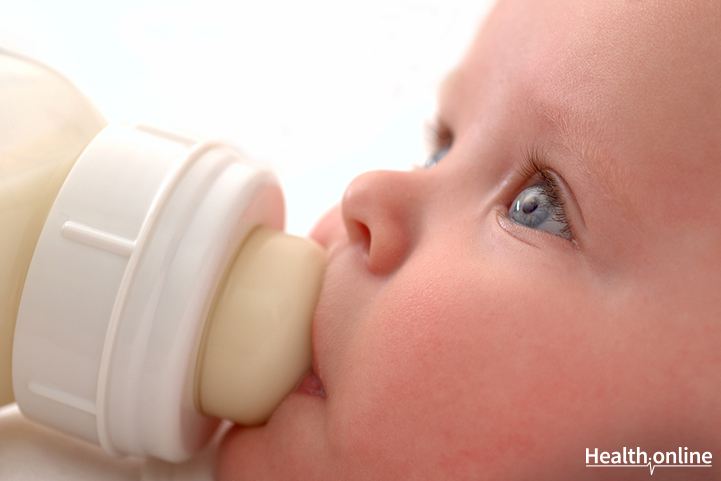
Combining Breastfeeding with Formula Feeding: What You Need to Know
As you welcome a newborn into the world and into your life, it’s always advisable to breastfeed the baby for the first six months, since the benefits of breast milk go beyond nutrition. The nutritional benefits of breast milk are very important for the first six months to promote baby growth, before switching to formula feedings.
While breastfeeding is best for the baby’s health, opting for a mixed formula can help you to keep nursing the baby for longer. The formula contains all the essential nutrients that your baby needs to promote growth. In general, the more you breastfeed, the more milk you will produce.
However, if you hit a roadblock right at the onset of breastfeeding – for example, if your baby was separated from you at the hospital for too long – then you could be facing issues, such as your child not latching on well, or problems regarding adequate milk supply for the baby.
Recommended Read: Tips to Cope if Your Baby has Colic
Some women do not make enough milk to meet their baby’s needs. This is most common with women who become moms at later stages of life. Freda Rosenfeld, a certified lactation consultant in Brooklyn, New York believes that “The older a woman is when she has a baby, the more likely she is to have milk-supply problems.” Experts aren’t sure of the precise reason; but as a woman gets older, her body becomes less efficient over time to produce enough milk for lactation.
Also if your baby repeatedly feels hungry after you breastfeed, then perhaps you might have a lower milk supply. Consult a paediatrician to weigh your infant before and after feeding, to determine the quantity of milk received by them.
Since women face a series of issues when it comes to breastfeeding, besides shortage of milk supply – including sleep deprivation and pumping issues (i.e. when the woman’s body is slow to adapt to producing milk when baby needs it) – doctors have increasingly started to recommend mixed feeding.
What are the effects of mixed feeding on baby’s health? Is mixing breast milk with formula safe? When is the right time to start mixed feeding? As you read on, you will learn the answers to these and other important questions.
How do you combine breastfeeding with bottle feeding?
Combining breastfeeding with bottle feeding using formula or expressed milk is a choice that has worked well for many new moms. However, it’s always advisable to wait for at least six months before you introduce formula to the newborn.
Lactation consultants recommend establishing a breastfeeding routine for two months until your milk supply is regulated. You can then occasionally introduce a bottle that won’t disrupt the routine too much.
Amy Peterson, a lactation consultant and co-author of Balancing Breast and Bottle: Reaching Your Breastfeeding Goals advises bottle feeding to be introduced around three to four weeks after breastfeeding routine gets established – “When the baby is willing to suck on to anything.” If you wait for too long to start mixed feeding or bottle feeding, the baby will realise the difference and demand breastfeeding alone.
If your baby is an enthusiastic eater and gets introduced to bottle feeding quite early, then they will prefer the bottle over the breast because of the quick delivery system via bottle nipples.
The baby, when fed with a formula, can go on a bit longer without feeling hungry since it’s not easy for them to digest formula as quickly as they digest breast milk. You will also notice a marked difference in baby’s bowel movements, when supplemented with a formula early on, in the first few months after birth.
If your baby vomits after mixed feeding or you spot blood in stools, then consult a paediatrician immediately. It is a sign of milk intolerance.
What is a good formula for breastfed babies?
You should choose a formula that is fortified with iron for breastfeeding your baby. Powdered formula isn’t fertile, so choose a formula that comes as a liquid concentrate, ready-to-feed the infant. Consult your paediatrician to determine the right feeding formula for your child.
If you substitute breastfeeding with a formula feed, it will take around three to seven days for your breasts to adjust to missing the feed. Introducing formula feeds will reduce the amount of breast milk you produce. Formula from a bottle that a baby has drunk should be discarded within an hour of preparation.
Recommended Read: Breastfeeding Tips for Working Mothers
Choose a formula that is closest to breast milk. If working moms are worried about the nutrient feed for your baby missing on breastfeeds then choose a formula packed with nutrients, minerals and vitamins. However, busy working moms should always remember that replacing breast milk with formulas very early can negatively affect the baby’s growth.
Keep yourself updated with the latest on Parenting . Like us on Facebook and follow us on Twitter for more on Health and Family Planning & Pregnancy . Also, check out our Health Tools and try out our health-related Quizzes .




